The Troubling History of Big Tobacco’s Cozy Ties With Black Leaders
 In an in-depth investigative piece, Mother Jones magazine explores the relationship between large tobacco companies and the black community and its political leaders, as well as the reason one of the community's biggest killers is rarely discussed.
In an in-depth investigative piece, Mother Jones magazine explores the relationship between large tobacco companies and the black community and its political leaders, as well as the reason one of the community's biggest killers is rarely discussed.
"It's hardly surprising that a tobacco company would donate more money to Republican politicians than to Democrats, who are generally more amenable than GOPers to taxes and regulation. North Carolina's Lorillard Tobacco, for instance, gave nearly four times as much cash to Republican candidates during the 2014 congressional election cycle. But the company (which recently merged with Reynolds American, Inc.) made a striking exception for one particular subset of Democrats: African Americans.
"Our analysis of records from the Center for Responsive Politics revealed that half of all black members of Congress received financial support from Lorillard, as opposed to just one in 38 non-black Democrats. To put it another way, black lawmakers — all but one of whom are Democrats — were 19 times as likely as non-black Democrats to get a donation.
"It's not hard to see why Lorillard might employ this strategy. Federal officials are now considering whether to add menthol, the minty, throat-numbing additive to the list of flavorings Congress banned from cigarettes in 2009 for public health reasons. Lorillard's Newport is the nation's top-selling menthol brand, accounting for billions in annual sales. And who most favors menthols? Black smokers, by a wide margin."
Read the entire piece here.
African-American books of Interest, 2015-2016
 If you'd like to catch up on your reading and/or broaden your literary horizons, click here for a list of African-American books being published between September 2015 and March 2016. The list was compiled from publisher responses to the Publishers Weekly October Call for Information. “The bible of the book business,” PW is a weekly news magazine focused on the international book publishing business. Please visit this link for a list of African-American books for young readers.
If you'd like to catch up on your reading and/or broaden your literary horizons, click here for a list of African-American books being published between September 2015 and March 2016. The list was compiled from publisher responses to the Publishers Weekly October Call for Information. “The bible of the book business,” PW is a weekly news magazine focused on the international book publishing business. Please visit this link for a list of African-American books for young readers.
Black Artists and the March Into the Museum

An untitled oil on canvas, from 1949, by Norman Lewis Estate of Norman W. Lewis, Courtesy of Iandor Fine Arts, New Jersey
From a New York Times story, including several video interviews: "The painter Norman Lewis rarely complained in public about the singular struggles of being a black artist in America. But in 1979, dying of cancer, he made a prediction to his family. “He said to us, ‘I think it’s going to take about 30 years, maybe 40, before people stop caring whether I’m black and just pay attention to the work,’ ” Lewis’s daughter, Tarin Fuller, recalled recently.
"Lewis was just about right. In the last few years alone, his work has been acquired by the National Gallery of Art in Washington; the Museum of Fine Arts, Boston; and the Museum of Modern Art in Manhattan. This month the Pennsylvania Academy of the Fine Arts opened the first extensive survey of Lewis, an important but overlooked figure in the Abstract Expressionist movement — and a man who might well have been predicting history’s arc for several generations of African-American artists in overcoming institutional neglect.
"After decades of spotty acquisitions, undernourished scholarship and token exhibitions, American museums are rewriting the history of 20th-century art to include black artists in a more visible and meaningful way than ever before, playing historical catch-up at full tilt, followed by collectors who are rushing to find the most significant works before they are out of reach.
"Gavin Delahunty, a Dallas Museum of Art curator who recently organized a show devoted to Frank Bowling, a Guyanese-born abstract painter who has long worked in New York, said a growing number of curators emerging from graduate programs since the late 1990s felt “like we were educated to address an imbalance in representation. And it’s very natural to me that it’s what we should be doing now in our positions,” he said, adding, “I think there’s a real sense that the doors are pretty wide-open now.”
Read Randy Kennedy's piece and view the videos here.
As it nears its 50th year, Kwanzaa strives for relevance
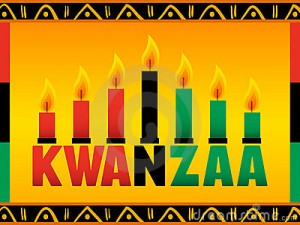 According to Kwanzaa founder, Maulana Karenga, professor and chair of the Africana Studies Department at Cal State Long Beach, the festival, with roots in pan-African agricultural harvest celebrations, introduces and reinforces seven basic African values: unity, self-determination, collective work and responsibility, cooperative economics, purpose, creativity and faith. The Nguzo Saba, or “seven principles,” reaffirms … the best of family, community and culture,” Karenga said.
According to Kwanzaa founder, Maulana Karenga, professor and chair of the Africana Studies Department at Cal State Long Beach, the festival, with roots in pan-African agricultural harvest celebrations, introduces and reinforces seven basic African values: unity, self-determination, collective work and responsibility, cooperative economics, purpose, creativity and faith. The Nguzo Saba, or “seven principles,” reaffirms … the best of family, community and culture,” Karenga said.
Karenga created the holiday in 1966 after the Watts riots and during the Black Power Movement “as an act of self-determination,” and a way to bring African-Americans together as a community and add to the “conversation from an African-centered perspective and to the struggle to radically transform society.”
Since then, Karenga says “interest in Kwanzaa and the number of its celebrants among African American people as well as Africans throughout the world has steadily grown.” However, some question whether Kwanzaa is effective and do African Americans have the ability to embrace it.
Read the Los Angeles Wave story here examining the issue. The Wave is the largest group of community newspapers in Los Angeles.
TBHPP Bookshelf
 Published scholarship on black history in Texas is growing and we'd like to share with you some suggested readings, both current and past, from some of the preeminent history scholars in Texas and beyond. We invite you to take a look at our bookshelf page -- including a featured selection -- and check back as the list grows. A different selection will be featured each week. We welcome suggestions and reviews. This week, we offer "No Color Is My Kind, The Life of Eldrewey Stearns and the Integration of Houston," by Thomas R. Cole.
Published scholarship on black history in Texas is growing and we'd like to share with you some suggested readings, both current and past, from some of the preeminent history scholars in Texas and beyond. We invite you to take a look at our bookshelf page -- including a featured selection -- and check back as the list grows. A different selection will be featured each week. We welcome suggestions and reviews. This week, we offer "No Color Is My Kind, The Life of Eldrewey Stearns and the Integration of Houston," by Thomas R. Cole.
In this uncommon chronicle of identity, fate, and compassion as two men -- one Jewish and one African American -- set out to rediscover a life lost to manic depression and alcoholism. In 1984, Thomas Cole discovered Eldrewey Stearns in a Galveston psychiatric hospital. Stearns, a fifty-two-year-old black man, complained that although he felt very important, no one understood him. Over the course of the next decade, Cole and Stearns, in a tumultuous and often painful collaboration, recovered Stearns' life before his slide into madness -- as a young boy in Galveston and San Augustine and as a civil rights leader and lawyer who sparked Houston's desegregation movement between 1959 and 1963.
This week in Texas black history, Dec. 20-26
Calendar courtesy Texas Black History Preservation Project
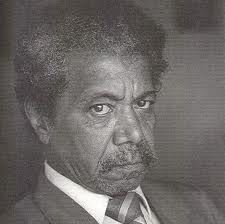 21 – On this day in 1931, Eldrewey Stearns was born in Galveston. In 1960, Stearns became the first president of the Progressive Youth Association at Texas Southern University and led the group’s demonstrations against discrimination in various Houston facilities. The group was successful in opening access for African Americans in downtown stores, and their demonstrations against employment discrimination opened jobs for blacks at drugstores, service stations and banks in the city’s black communities.
21 – On this day in 1931, Eldrewey Stearns was born in Galveston. In 1960, Stearns became the first president of the Progressive Youth Association at Texas Southern University and led the group’s demonstrations against discrimination in various Houston facilities. The group was successful in opening access for African Americans in downtown stores, and their demonstrations against employment discrimination opened jobs for blacks at drugstores, service stations and banks in the city’s black communities.
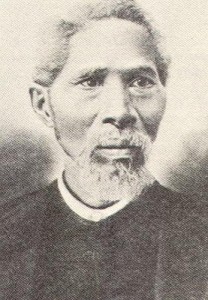 22 – On this day in 1897, Rev. John Henry “Jack” Yates died in Houston. Yates, a former slave, was born in Virginia but migrated to Texas when his wife’s master moved to Matagorda County in 1863. After emancipation, Yates moved his family to Houston where he became the first pastor of Antioch Missionary Baptist Church, the first black Baptist church in Houston. He also organized the first Baptist association for blacks in Houston. Jack Yates High School is named in his honor.
22 – On this day in 1897, Rev. John Henry “Jack” Yates died in Houston. Yates, a former slave, was born in Virginia but migrated to Texas when his wife’s master moved to Matagorda County in 1863. After emancipation, Yates moved his family to Houston where he became the first pastor of Antioch Missionary Baptist Church, the first black Baptist church in Houston. He also organized the first Baptist association for blacks in Houston. Jack Yates High School is named in his honor.
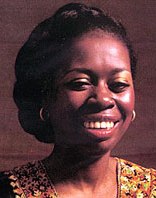 23 – Singer Esther Mae Jones was born in Galveston on this day in 1935. As “Little Esther,” she began her professional career at age 13. She changed her last name to Phillips in 1962. In 1975, she recorded her biggest hit single, "What a Difference a Day Makes," which ranked in the top 10 of both the R&B and pop charts.
23 – Singer Esther Mae Jones was born in Galveston on this day in 1935. As “Little Esther,” she began her professional career at age 13. She changed her last name to Phillips in 1962. In 1975, she recorded her biggest hit single, "What a Difference a Day Makes," which ranked in the top 10 of both the R&B and pop charts.
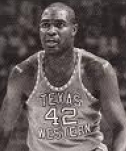 23 – On this day in 1943, David Lattin was born in Houston. Lattin graduated from segregated Evan E. Worthing High School where he was twice named a high school All-American, the first such honor for any Texas prep basketball player. Afterwards, he was the starting center for Texas Western (now UT-El Paso) on its historic 1966 national championship team that upset No. 1-ranked Kentucky and its legendary coach, Adolph Rupp. Lattin has been inducted to both the Texas Black Sports Hall of Fame and the Naismith Memorial Basketball Hall of Fame.
23 – On this day in 1943, David Lattin was born in Houston. Lattin graduated from segregated Evan E. Worthing High School where he was twice named a high school All-American, the first such honor for any Texas prep basketball player. Afterwards, he was the starting center for Texas Western (now UT-El Paso) on its historic 1966 national championship team that upset No. 1-ranked Kentucky and its legendary coach, Adolph Rupp. Lattin has been inducted to both the Texas Black Sports Hall of Fame and the Naismith Memorial Basketball Hall of Fame.
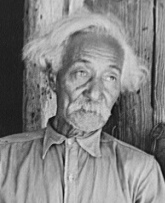 23 – Bob Lemmons (or, Lemons) died on this day in 1947. Called "the most original mustanger," by author J. Frank Dobie, Lemmons was born into slavery in Lockport, Caldwell County in 1848, but freed at age 17 in Carrizo Springs in Southwest Texas. He moved to Eagle Pass to work and learn from rancher Duncan Lemmons, and adopted his mentor's last name. Bob Lemmons became known for his ability to track and gather wild horses by isolating himself from humans and riding with a wild herd until they accepted his presence. He then took control of the herd by mounting the lead stallion and leading the herd into a corral on a nearby ranch. The picture book Black Cowboy, Wild Horses is based on accounts from Lemmons.
23 – Bob Lemmons (or, Lemons) died on this day in 1947. Called "the most original mustanger," by author J. Frank Dobie, Lemmons was born into slavery in Lockport, Caldwell County in 1848, but freed at age 17 in Carrizo Springs in Southwest Texas. He moved to Eagle Pass to work and learn from rancher Duncan Lemmons, and adopted his mentor's last name. Bob Lemmons became known for his ability to track and gather wild horses by isolating himself from humans and riding with a wild herd until they accepted his presence. He then took control of the herd by mounting the lead stallion and leading the herd into a corral on a nearby ranch. The picture book Black Cowboy, Wild Horses is based on accounts from Lemmons.
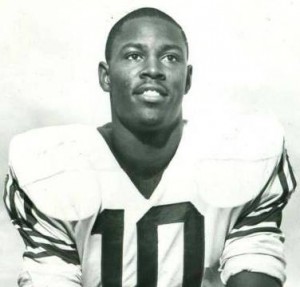 24 – Quarterback Eldridge Dickey was born this day in 1945 in Houston. Dickey was a gifted All-State performer at Booker T. Washington High School (a member of the Prairie View Interscholastic League) then starred at Tennessee State University (Tennessee A&I) from 1964 until 1967 and was a three-time black college All-America. At Tennessee State, Dickey threw for 6,523 yards and 67 touchdowns and in 1966 led the Tigers to the program’s first-ever undefeated, untied season (10-0) as well as their first black college national championship. In 1968, the Oakland Raiders made Dickey the first-ever African-American quarterback taken in the first round of a pro draft. Dickey was inducted to the Black College Football Hall of Fame in 2011.
24 – Quarterback Eldridge Dickey was born this day in 1945 in Houston. Dickey was a gifted All-State performer at Booker T. Washington High School (a member of the Prairie View Interscholastic League) then starred at Tennessee State University (Tennessee A&I) from 1964 until 1967 and was a three-time black college All-America. At Tennessee State, Dickey threw for 6,523 yards and 67 touchdowns and in 1966 led the Tigers to the program’s first-ever undefeated, untied season (10-0) as well as their first black college national championship. In 1968, the Oakland Raiders made Dickey the first-ever African-American quarterback taken in the first round of a pro draft. Dickey was inducted to the Black College Football Hall of Fame in 2011.
 26 – On this day in 1929, the city of Independence Heights was formally annexed by Houston. The Wright Land Company had originally secured the land, incorporated in 1910, and developed a new community for blacks. By doing its own financing the company made it possible for people with small incomes to become homeowners. Resident contractors built most of the houses and churches. Independence Heights incorporated in 1915, with a population of 600; according to a Houston Post story dated January 17, 1915, it was the first incorporated black city in Texas. Attorney G.O. Burgess (pictured) was its first mayor. In November 1928 Independence Heights residents voted to dissolve the city's incorporation because of their desire to become a part of Houston. In 1989 a Texas Historical Commission marker was placed on the grounds of New Hope Missionary Baptist Church to mark the city site.
26 – On this day in 1929, the city of Independence Heights was formally annexed by Houston. The Wright Land Company had originally secured the land, incorporated in 1910, and developed a new community for blacks. By doing its own financing the company made it possible for people with small incomes to become homeowners. Resident contractors built most of the houses and churches. Independence Heights incorporated in 1915, with a population of 600; according to a Houston Post story dated January 17, 1915, it was the first incorporated black city in Texas. Attorney G.O. Burgess (pictured) was its first mayor. In November 1928 Independence Heights residents voted to dissolve the city's incorporation because of their desire to become a part of Houston. In 1989 a Texas Historical Commission marker was placed on the grounds of New Hope Missionary Baptist Church to mark the city site.
 26 – On this date in 1908 Galveston’s Jack Johnson became the first African-American to win the world heavyweight boxing title. Johnson dethroned reigning champion Tommy Burns in Sydney, Australia winning a 14-round decision. Johnson had claimed the unofficial black heavyweight championship in 1903 with a victory over "Denver Ed" Martin. However, champions John L. Sullivan and Jim Jeffries, both white, had refused to fight Johnson, claiming that to do so would sully the sport’s reputation.
26 – On this date in 1908 Galveston’s Jack Johnson became the first African-American to win the world heavyweight boxing title. Johnson dethroned reigning champion Tommy Burns in Sydney, Australia winning a 14-round decision. Johnson had claimed the unofficial black heavyweight championship in 1903 with a victory over "Denver Ed" Martin. However, champions John L. Sullivan and Jim Jeffries, both white, had refused to fight Johnson, claiming that to do so would sully the sport’s reputation.
Blog: Ron Goodwin, author, PVAMU history professor
Ron Good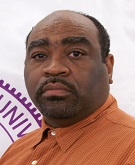 win's bi-weekly blog appears exclusively for TIPHC/TBHPP. Goodwin is a San Antonio native and Air Force veteran. Generally, his column will address contemporary issues in the black community and how they relate to black history. He and the TIPHC/TBHPP staff welcome your comments. In his latest blog, "Still dealing with issues of race," Goodwin tackles the latest affirmative action debate. Read it here.
win's bi-weekly blog appears exclusively for TIPHC/TBHPP. Goodwin is a San Antonio native and Air Force veteran. Generally, his column will address contemporary issues in the black community and how they relate to black history. He and the TIPHC/TBHPP staff welcome your comments. In his latest blog, "Still dealing with issues of race," Goodwin tackles the latest affirmative action debate. Read it here.
Submissions wanted
Historians, scholars, students, lend us your...writings. Help us produce the most comprehensive documentation ever undertaken for the African American experience in Texas. We encourage you to contribute items about people, places, events, issues, politics/legislation, sports, entertainment, religion, etc., as general entries or essays. Our documentation is wide-ranging and diverse, and you may research and write about the subject of your interest or, to start, please consult our list of suggested biographical entries and see submission guidelines. However, all topics must be approved by TIPHC/TBHPP editors before beginning your research/writing.
We welcome your questions or comments via email or telephone – mdhurd@pvamu.edu, 936-261-9836.
